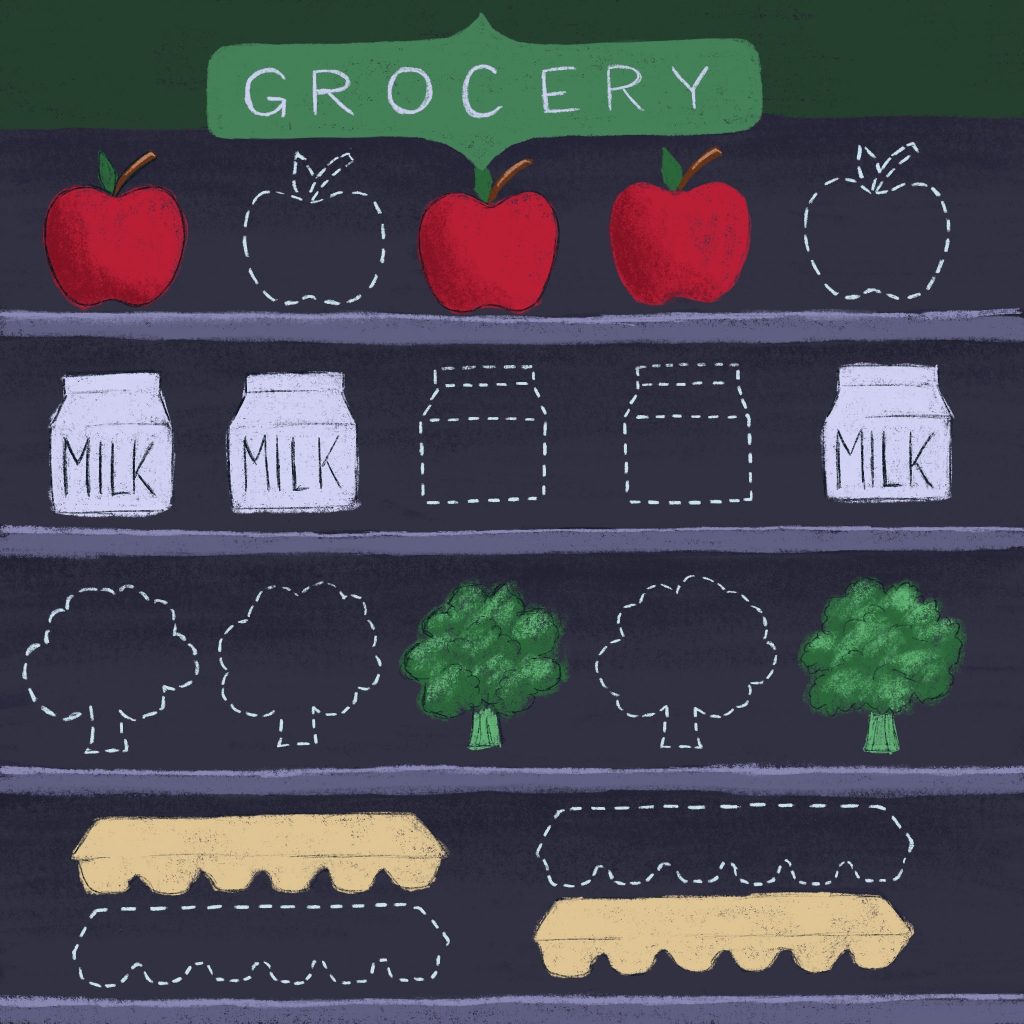Around the holidays, volunteering usually increases by around 50 percent, and donations toward food banks spike. While this uptick in generosity is useful, issues of food insecurity should not only be prioritized and be gaining attention during the holiday season. Those suffering from food insecurity feel its impacts every day.
There were about 25,950 food insecure people in Broome County in 2019 — around 13 percent of the county’s population — which has been exacerbated by inflation and the COVID-19 pandemic. Additionally, more than 21 percent of children in Broome County live in food insecure households. The prevalence of food insecurity in Broome County is likely due to a combination of a lack of access to grocery stores and high poverty rates — Broome County has a poverty rate of about 18.4 percent. Many food insecure individuals also don’t qualify for assistance — one-fifth of food-insecure children are part of households with earnings too high to qualify. Those that fall within this gray zone are especially vulnerable, as they struggle to provide for themselves and their families without help.
Significant areas of Binghamton have for long been considered food deserts, or areas in which affordable or high-quality food is sparse, including Binghamton’s North Side and other areas of Downtown Binghamton, like south of Floral Avenue, along the Susquehanna River, Riverside Drive in Johnson City, Endicott and south of Main Street. The first grocery store in 25 years finally opened in Binghamton’s North Side in January of 2021. In 2017, the city of Binghamton launched a shuttle program to bus residents of the North Side to grocery stores. Before this program, residents without cars had to take long bus rides and expensive cabs to get groceries.
There are a variety of ways that BU students and local residents can get involved in efforts to combat food insecurity. Local organizations like the Binghamton Food Rescue and Community Hunger Outreach Warehouse (CHOW), the Food Bank of the Southern Tier, Volunteers Improving Neighborhood Environments (VINES) and the BU student-run Poverty Awareness Coalition seek to address food insecurity in Broome County through food drives and community gardens and shares year-round.
COVID-19 has both increased food insecurity and hindered efforts to alleviate food insecurity. 2020 saw an almost 5 percent increase in food insecurity across the Southern Tier, as many became unemployed or were unable to leave their homes due to the pandemic. As demand rose, supply dramatically dropped for the same reasons — the amount of food donated to the Broome County Council of Churches, which operates the CHOW program, was 101 pounds less than usual. Schools also faced difficulties in providing meals for the increasing number of students in need, so Broome-Tioga BOCES supplemented 1.8 million meals between March to August for their own students and those at home.
As students, we are part of the Binghamton community — those facing food insecurity are our neighbors, community members and fellow students. Looking past the holiday season, our obligation to the other members of our community cannot be forgotten, and the opportunities available to students cannot be ignored.



